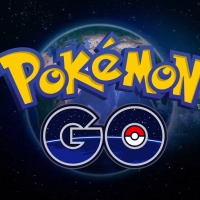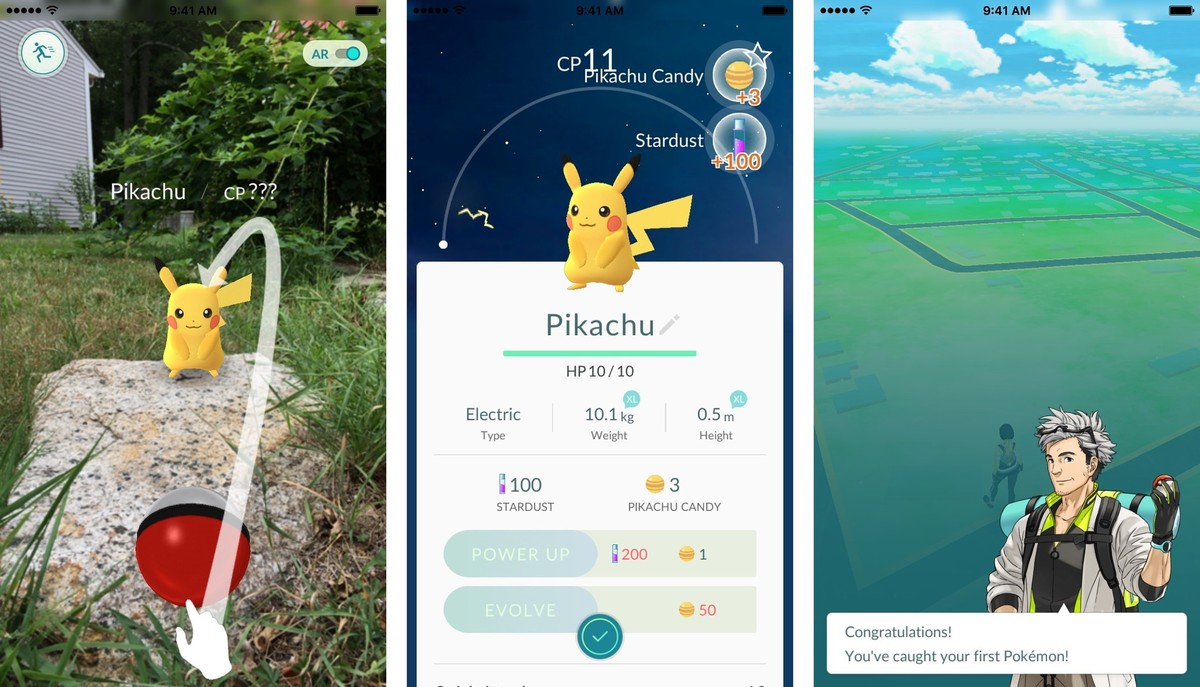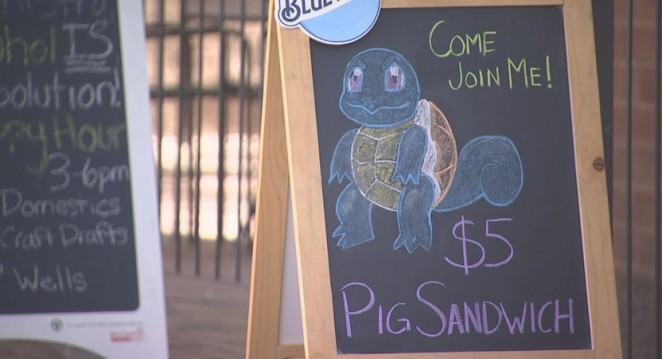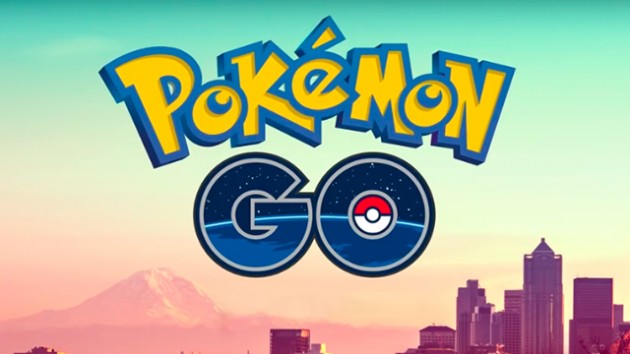Pokémon GO: Nothing to Poke Fun At
 Earlier in August, the mobile AR (augmented reality) game Pokémon Go passed the 100 million downloads threshold. The game that induced a veritable global craze was developed by a relatively unknown company Niantic in conjunction with Nintendo. And in just a few short weeks it has all but obliterated the previous mobile game records held by Candy Crush Saga and Clash Royale respectively. So what’s all this fuss about?
Earlier in August, the mobile AR (augmented reality) game Pokémon Go passed the 100 million downloads threshold. The game that induced a veritable global craze was developed by a relatively unknown company Niantic in conjunction with Nintendo. And in just a few short weeks it has all but obliterated the previous mobile game records held by Candy Crush Saga and Clash Royale respectively. So what’s all this fuss about?

First, a few numbers to put things into perspective. To date (i.e., a month after release) the game has garnered a total of over USD 268 mln in revenue in US, UK and Germany combined, according to CNBC and the Financial Times. Out of at least around 100 million actual players globally, there are 11 million players who support the growing revenue stream in US and UK. Industry insiders predict the revenue total will approach USD 1 billion in the future, and considering the game is free, the achievement is truly outstanding.

Just like with any other freemium title, it won’t cost you a single red cent – it’s free to download and free to play. However, if you wish, you could spring for a better-looking avatar, perhaps a little more room to hold your pets, that sort of thing. It’s called microtransactions. You pay a very small amount of money inside the game (an in-app purchase) for a very small addition, usually cosmetic in nature. It very rarely costs more than a single buck. And this, you may be surprised to learn, adds up to a whopping number mentioned above in just a month.
Who plays?
Who are these millions, then? At a glance, that number is generated by your typical contemporary gamers. A third are above 35, a third are between 18 and 35, with the last 30% are split between the over-55s and teens. The split skews a little in favour of older gamers due to the nostalgia factor, often cited as the main reason for the Pokémon brand’s cyclic resurgence in popularity every 10 years or so.

What’s Pokémon?
Having existed as a series of great handheld console games and later appearing in everything from comic books to TV series and toys, the brand experienced its first boom back in the late 90s and early Noughties. And yet it wouldn’t be an accurate assumption to claim that turn of the century was the IP’s heyday. The brand continuously evolves, much like Pokémon themselves. The games and the universe are updated every few years into a new „generation” that inevitably lures in current teens and young adults. Modern incarnations belong to the sixth Pokémon generation, and paradoxically, Pokémon Go itself is not considered a true part of it.

Fortunately for Niantic, the allure of the battle-based collectible world is extremely hard to resist. The kids who were there at the first generation of Pokémon games are now grown-ups. In fact, according to YouGov, many of them have well-paying jobs and a lot of spending money on hand to invest in their unrealized childhood dreams and fantasies. Plus, you know, it’s still a cool thing to play, and that is always a good thing for an aspiring hip millennial.
Who pays?
Almost a fifth of these nostalgia-driven users are paying for the additional Incense, better Poké Balls and other bonuses that will help them eventually „catch ’em all”. Considering the Poké-mania is still going strong more than five weeks after initial release, the game seems indeed to be a rousing success. And just FYI, people in Asia, Africa and many parts of Europe are still waiting for the game’s release!

Meanwhile, those that already have an opportunity to catch and train pets do so with abandon. Just in the UK, 90% of those who downloaded the game are still playing it. That’s 5.3 million people out of the 6.1 million that pressed „install” on their iOS or Android device. A truly impressive retention number for a game that was a really flawed product since day 1, with multiple glitches and server errors accompanying what is now considered one of the rockiest game launches in recent history. Coupled with gameplay that seems bland and uninspired, P:Go was never critically acclaimed. And yet it somehow breaks record after record.

Getting out
Perhaps its secret lies in the way it breaks the mould of the traditional gaming stereotype. Indeed, most players praise P:GO universally for the fact that it promotes physically moving around in the open. Pokémon Go doesn’t just ditch the comfy gamers’ sofa, it does away with the gaming room altogether. While any mobile game can truly be played anywhere, most of the time it’s a casual affair. Often it’s something you do to pass the time in a waiting area, on a train or during lunch. With Pokémon Go it’s a little harder to just let the game be a distraction. It demands your full attention and requires you to actually move to find, obtain, hatch or train your virtual combat pet. Some new data suggest that in the US, the AR phenomenon sparked by P:GO could lead to positive health benefits for the populace in the long run – and, predictable pun aside, make people run longer, too.
The Tao of Go
The game’s objectives actually force you to be active. You start with the instant gratification of obtaining easy-to-find Pokémon. Those are everywhere, including your home or place of work. But then to get tougher pets, or perhaps make your existing ones stronger, you have no choice but to engage in more physically demanding activities. You’ll have to get to a certain spot by any means you have at your disposal – perhaps it’s a distance of 100 metres, maybe a kilometre. And, predictably, Pokémon are often located in hard-to-reach spots, so you often have to walk or even climb to get them. A 10-kilometre walk to hatch a Pokémon egg is a perfectly ordinary thing at a certain level.

The core loop of the game consists of finding and improving your pets to pit them against the pets of others to improve these pets, etc. It promotes active socializing on top of simple real-world exploration. Your combat pets can only grow if you eventually engage in virtual battle with other Trainers’ pets in your physical vicinity. And the fact that so many item spawn points (Pokéstops) and gyms (places where you train your pets) are located in Points of Interest means you have to actually see, albeit often through your smartphone’s screen, many interesting places nearby. It might be a beach, a city square, a famous landmark or a local pub. In many cases, this may be a literal walk in the park! But is it really as healthy a pastime as it seems to be?

Not all a plus
There are dangers here that are only now being explored by regulators and law enforcement. These are concerns over general safety of players, who tend to forget they are near busy roads or rough terrain. And then there’s also a growing problem of players trespassing on private areas and places that are off-limits to general populace. The police have been issuing warnings and alerts to look out for careless Pokémon players almost since the release. Unfortunately and tragically, a week into release, a teenager got so engrossed in the game that he attempted to enter into someone’s house at night and was shot to death. The owner mistook him for a burglar.

There are more reports of such accidents, and while Niantic don’t encourage exploring rough terrain or private property, their algorithms for placement of rare Pokémons seem to favour less populated or remote areas. The exploration-related dangers of Pokémon Go even forced one 10-year-old from Nebraska to launch a crowdfunding campaign to create special reflective Poké Glo safety buttons. These are to be worn while on the prowl for the most elusive Pokémon out there to increase the player’s visibility.
A late tie-in
Pokémon Go’s surge in popularity is nothing short of spectacular. However, the rough launch of the game and subsequent wildly varying reactions of the market also prove that the industry at large was not prepared for its runaway success. Larger companies and brands seem to be cautiously interested, but the industry heavyweights have adopted the wait-and-see approach.
Many medium- to smaller-sized enterprises, on the other hand, are all too keen to tap into this vast new customer base in more creative, indirect ways.

The Internet travelling agency Expedia have recently sponsored a P:GO fan’s dream by paying for his round-the-globe trip in search of all Pokémon available on the planet. His Pokédex (virtual album/device that stores all your pets) is now bursting at the seams, and Expedia is now the go-to destination for P:GO fans. An ice-cream store owner from Washington claims his sales are going through the roof ever since several Pokéstops opened in the vicinity. A small town of Nashua in New Hampshire has actually been reinvigorated – nightlife and all – just because of the newly instated Pokemon hotspots in the area. There’s a clear and measurable effect that Pokemon Go had in many corners. But the idea that other businesses may profit from the way people interact with the world of Pokémon Go did not go unnoticed by the game’s maker, Niantic.

Sponsored locations
The Financial Times recently reported that so-called „sponsored locations” are coming to the app soon to exploit the consumer reach now available to the company.
Sponsored locations have already been tried by Niantic in their previous AR game, Ingress. It was a far less successful title, though much of its code has been repurposed for the mobile hit. It is still quite popular in Japan, but back in the day, stateside companies like Jamba Juice, Zipcar and Duane Reade have all invested into sponsored locations.
Here’s how it works. By default, Niantic doesn’t seem to interfere with the Pokémon placement aside from a few simple rules, e.g. that aquatic Pokémon can be found near bodies of water. In case of a sponsored spot, Niantic would make it so better Pokémon or items are available at that spot exclusively. The company who owns the location would pay Niantic for the privilege in a sort of a cross-sales programme. A sponsored location can be anything from a restaurant to a car dealership, but basically any business that wishes to increase footfall will benefit from the increased traffic. „There are several ways that we see the potential for significant monetisation of Pokémon Go by Nintendo, and one of them is certainly the potential for paid advertising or paid deals that encourage players to come to a particular building or store,” says Atul Goyal, an analyst over at Jeffreys.

But businesses aren’t all just embracing the concept. Some companies are actually afraid of how Pokémon Go gathers its data and communicates with its users. Since it uses GPS tracking and phone camera, sensitive data or secrets can be potentially stolen by using the game’s infrastructure. Volkswagen went so far as banning the game outright. The game is also banned in Iran, although more for political and cultural reasons.
It seems that the world is slowly but surely waking up to the many pitfalls and possibilities of this new game, whose popularity far outstripped any other game to date. It’s only a matter of time before someone makes a mint using the Pokémon: Go’s unique customer base and gameplay mechanics. Perhaps it’s going to be you?

VOCABULARY
augmented – wzmocniony, ulepszony
threshold – próg
to induce sth – wywołać coś, wzniecić
veritable – istny, prawdziwy
craze – szał
relatively – stosunkowo, względnie
in conjunction with – w parze z, wraz z
all but X – praktycznie X, prawie
to obliterate sth – zniszczyć coś, zetrzeć w proch
respectively – odpowiednio
what’s all the fuss about – o co cały ten szum, o co tyle krzyku
to put things into perspective – pokazać coś w odpowiednim świetle/z innego punktu widzenia
to date – na chwilę obecną
release – publikacja, wypuszczenie na rynek
to garner – zebrać, zyskać
revenue – przychód, wpływy
combined – łącznie
insider – osoba dobrze poinformowana, ekspert
to predict – przewidzieć
to approach X – zbliżyć się do X
considering… – zważywszy na…/, że…
outstanding – znakomity, wybitny
freemium – gra/app typu freemium (bezpłatna, lecz z możliwością dokonywania zakupów w aplikacji)
sth won’t cost a single red cent – coś nie będzie kosztowało złamanego grosza
to spring for sth – zapłacić za coś
purchase – zakup
addition – dodatek
buck – dolec (pot., US)
to add up to X – zsumować się do X, łącznie wynieść X
whopping – gigantyczny
at a glance – na pierwszy rzut oka
contemporary – współczesny
to split – podzielić
to skew in favour of sth – wypadać bardziej na korzyść czegoś, skłaniać się w jakąś stronę
due to – z powodu, za przyczyną
to cite sth as sth – przytaczać coś jako przykład czegoś
resurgence – odrodzenie, ponowny wzrost
to exist – istnieć
handheld – ręczny, przenośny
the Noughties – lata zerowe (pot., UK)
assumption – założenie
turn of the century – przełom wieków
IP (intellectual property) – własność intelektualna
heyday – okres rozkwitu, złote lata
inevitably – nieuchronnie
to lure sb in – przyciągnąć kogoś, zwabić
adult – dorosły
incarnation – wcielenie, odsłona
to consider sth sth – uznawać coś za coś/jakieś
fortunately for sb – szczęśliwie dla kogoś
allure – powab
collectible – przedmiot kolekcjonerski
to resist – oprzeć się
grown-up – dorosły
well-paying – dobrze płatny (tylko przed rzeczownikiem)
spending money – pieniądze na wydatki, pieniądze na przyjemności
on hand – pod ręką
unrealized – niespełniony
aspiring – aspirujący, ambitny
hip – modny
millennial – osoba, która urodziła się w latach 80tych XX wieku
X-driven – którym powoduje X, zmotywowany przez X (tylko przed rzeczownikiem)
incense – kadzidło
eventually – ostatecznie
to be still going strong – nadal dobrze iść/nadal doskonale się miewać
initial – początkowy
rousing success – wspaniały sukces
FYI (for your information) – nota bene, tak nawiasem mówiąc
to do sth with abandon – oddawać się czemuś z radością
device – urządzenie
impressive – imponujący
retention – utrzymanie, retencja
flawed – pełen wad
glitch – usterka (programu, systemu)
to accompany sth – towarzyszyć czemuś
rocky – niepewny, chwiejny
coupled with sth – w połączeniu z czymś
gameplay – rozgrywka
bland – nijaki
uninspired – sztampowy, nieciekawy
critically acclaimed – dobrze odebrany przez krytykę
to lie in sth – polegać na czymś
to break the mould – przełamywac stereotyp, wyłamywać się z typowego schematu
to praise sth – chwalić coś
universally – powszechnie
in the open – w terenie, na świeżym powietrzu
to ditch sth – porzucić coś, wywalić
comfy – wygodny (pot.)
to do away with sth – pozbyć się czegoś
altogether – zupełnie
casual affair – przygoda, chwilowe zauroczenie
to pass the time – zabić czas, spędzić czas na robieniu czegoś
distraction – odwrócenie uwagi, odmiana, rozrywka
to demand sth – żądać czegoś
to hatch sth – wysiadywać coś (jajko)
combat – walka
to spark sth – zapoczątkować coś, wszcząć
benefits – korzyści, zyski
populace – populacja, mieszkańcy
in the long run – na dłuższą metę
predictable – przewidywalny
pun – żart, gra słów
objective – cel
instant gratification – natychmiastowa gratyfikacja
to engage in sth – zajmować się czymś
by any means – w dowolny sposób
at sb’s disposal – do czyjejś dyspozycji
hard-to-reach – trudnodostępny
ordinary – zwyczajny
core loop – podstawowy mechanizm (angażowania graczy w grze)
to consist of sth – składać się z czegoś
to improve sth – ulepszyć coś
to pit sb against sb – wystawić kogoś przeciwko komuś (w walce)
vicinity – pobliże, otoczenie
to spawn – wytworzyć, utworzyć (postać, przedmiot w grze itp.)
gym – siłownia
point of interest – ciekawe miejsce, miejsce warte zobaczenia
albeit – chociaż, aczkolwiek
landmark – punkt orientacyjny
literal – dosłowny
pastime – rozrywka
law enforcement – organy ochrony porządku publicznego
concerns – obawy, niepokoje
safety – bezpieczeństwo
to tend to do sth – zazwyczaj coś robić
rough terrain – nierówny teren, teren, po którym trudno się porusza
to trespass on sth – bezprawnie wkroczyć na coś
to be off-limits to sb – być objętym zakazem wstępu dla kogoś
to issue a warning – wydać ostrzeżenie
to look out for sb – uważać na kogoś
careless – nieuważny, nieostrożny
engrossed in sth – pochłonięty czymś
to attempt to do sth – usiłować coś zrobić
to shoot sb to death – zastrzelić kogoś
to mistake sb for sb – pomylić kogoś z kimś
burglar – złodziej
to encourage sth – zachęcać do czegoś
private property – własność prywatna
placement – umieszczanie
remote – odległy
X-related – powiązany z X (tylko przed rzeczownikiem)
crowdfunding – crowdfunding, zbieranie pieniędzy na projekt prywatny od prywatnych sponsorów przez stronę społecznościową
reflective – odbijający światło
safety button – znaczek bezpieczeństwa
on the prowl for sth – w poszukiwaniu czegoś, na łowach (czegoś/za czymś)
elusive – ulotny, nieuchwytny
tie-in – powiązanie (produktu z innym produktem)
surge – gwałtowny wzrost
sth is nothing short of X – coś jest praktycznie rzecz biorąc X, coś jest ni mniej, ni więcej (jak tylko) X
subsequent – kolejny, późniejszy
varying – różniący się, zróżnicowany
at large – ogółem, w całości
runaway success – olbrzymi sukces
cautiously – ostrożnie
heavyweight – zawodnik wagi ciężkiej, poważny/większy gracz
wait-and-see – poczekamy, zobaczymy
enterprise – przedsiębiorstwo
keen to do sth – chętny do (z)robienia czegoś
to tap into sth – skorzystać z czegoś, wykorzystać coś
vast – ogromny
indirect – pośredni
to burst at the seams – pękać w szwach
go-to destination – najwazniejszy cel podróży, pozycja obowiązkowa
to go through the roof – osiągnąć zawrotną wysokość/niebotyczny poziom
newly instated – nowo powstały, nowo utworzony/zainstalowany
measurable – dający się zmierzyć, wymierny
in many corners – w wielu obszarach/kręgach
to profit from sth – skorzystać na czymś
not to go unnoticed – zostać zauważonym, nie przejśc bez echa
so-called – tak zwany
to exploit – wykorzystać
to repurpose sth – ponownie coś wykorzystać w nowym celu, przerobić coś i użyć na nowo
back in the day – w tamtych czasach, w tamtym momencie
stateside – znajdujący się w USA
by default – domyślnie
to interfere with sth – wtrącać się w coś, mieszać się do czegoś
aquatic – morski, wodny
body of water – zbiornik wodny
privilege – przywilej
cross-sales – sprzedaż wiązana
car dealership – salon sprzedaży aut
footfall – ilość odwiedzających/klientów
traffic – ruch (w tym uliczny, ludzi)
monetisation – monetyzacja, kapitalizacja
to embrace sth – zaakceptować coś, przyjąć
to gather – zbierać
sensitive – poufny
to go so far as doing sth – posunąć się (aż) do (z)robienia czegoś
to ban sth – zakazać czegoś
outright – na miejscu, od razu
to wake up to sth – zrozumieć coś, uświadomić coś sobie
pitfall – problem, kłopot
to outstrip sth – zdystansować coś
to make a mint – zarobić krocie
by Prochor Aniszczuk







